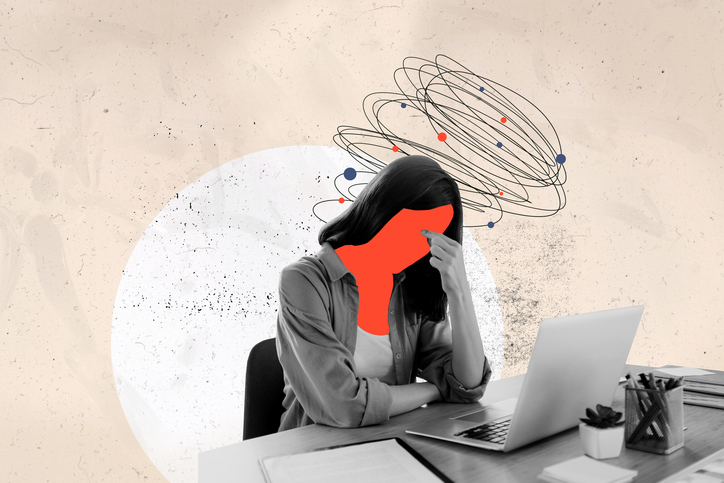When someone applies for disability benefits, it is usually because their health has already reached a breaking point. They may be unable to work, facing mounting medical bills, and struggling to maintain stability for themselves or their families. Receiving a denial letter from an insurance company like Prudential often feels like a devastating blow. Beyond the obvious financial strain, denied claims take a heavy toll on mental health — one that can directly affect the outcome of an appeal.
Understanding this psychological dimension is critical not only for claimants but also for legal professionals advocating on their behalf.
The Emotional Fallout of a Denied Disability Claim
Research has long established that financial insecurity is one of the leading drivers of stress and anxiety. According to the American Psychological Association, money consistently ranks as a top source of stress for Americans, and uncertainty about benefits compounds the problem. For disability claimants, a denial can trigger feelings of hopelessness, depression, and even suicidal ideation in severe cases.
For those already managing chronic illness or physical injury, stress worsens symptoms. Chronic anxiety increases blood pressure, disrupts sleep, and weakens immune response, creating a vicious cycle of physical and psychological decline. The denial of a claim is not simply a bureaucratic setback — it can be a profound mental health crisis.
How the Appeals Process Adds Psychological Strain
The appeals process itself can be daunting. Insurance companies often require extensive documentation, medical evaluations, and strict deadlines. For someone battling illness, managing this process feels overwhelming. Claimants may report feeling “gaslit” by insurers — told they are capable of working despite clear evidence of disability. This sense of invalidation only deepens psychological distress.
Prolonged appeals can last months or even years. During this time, financial resources dwindle, relationships may become strained, and mental health deteriorates further. Studies on the psychological impact of uncertainty show that prolonged waiting periods can be more stressful than receiving bad news outright. For disability claimants, that uncertainty is constant until an appeal is resolved.
The Importance of Mental Health Evidence in Disability Appeals
Ironically, the very psychological struggles triggered by claim denials can be used to strengthen an appeal. Courts and insurers increasingly recognize the importance of mental health in assessing disability. Documentation of depression, anxiety, or post-traumatic stress disorder can be crucial evidence.
Psychiatrists, therapists, and psychologists can provide records that highlight how the denial itself has worsened a claimant’s condition. For example, the National Organization of Social Security Claimants’ Representatives emphasizes that comprehensive medical documentation, including mental health records, is essential in building a strong case.
Including psychological evidence demonstrates that disability is not only about physical limitations. It also encompasses cognitive, emotional, and mental barriers that prevent individuals from engaging in meaningful work. When presented effectively, this evidence can change the outcome of an appeal.
Coping Strategies: Balancing Mental Health and Legal Stress
While navigating the appeals process, claimants must also safeguard their mental health. Coping strategies can reduce the intensity of psychological strain:
-
Therapy and Counseling: Professional support provides a safe outlet to process frustration, anxiety, and fear. Organizations like the National Alliance on Mental Illness can help connect claimants to resources.
-
Support Groups: Sharing experiences with others facing similar battles fosters community and reduces feelings of isolation.
-
Practical Self-Care: Maintaining sleep, nutrition, and physical activity, even at basic levels, stabilizes mood and strengthens resilience.
-
Delegating Legal Burden: Perhaps most importantly, securing legal representation helps remove much of the procedural and cognitive load from the claimant’s shoulders.
When someone else is managing deadlines, paperwork, and negotiations, the claimant can focus on treatment and recovery.
Conclusion: Addressing the Human Side of Disability Appeals
Disability claim denials are more than financial setbacks. They are life-altering events that reverberate through a person’s physical and mental health. The stress, anxiety, and despair they create not only harm well-being but can also influence the outcome of legal appeals if left undocumented or unaddressed.
For these reasons, acknowledging the psychological impact of a denied claim is not optional — it is essential. By combining mental health support with strategic legal action, claimants can approach appeals with stronger cases and greater resilience. For those facing this battle, especially with major insurers, working with an experienced Prudential disability appeal lawyer provides not only legal expertise but also critical relief from the psychological strain of navigating the process alone.








Leave a Comment